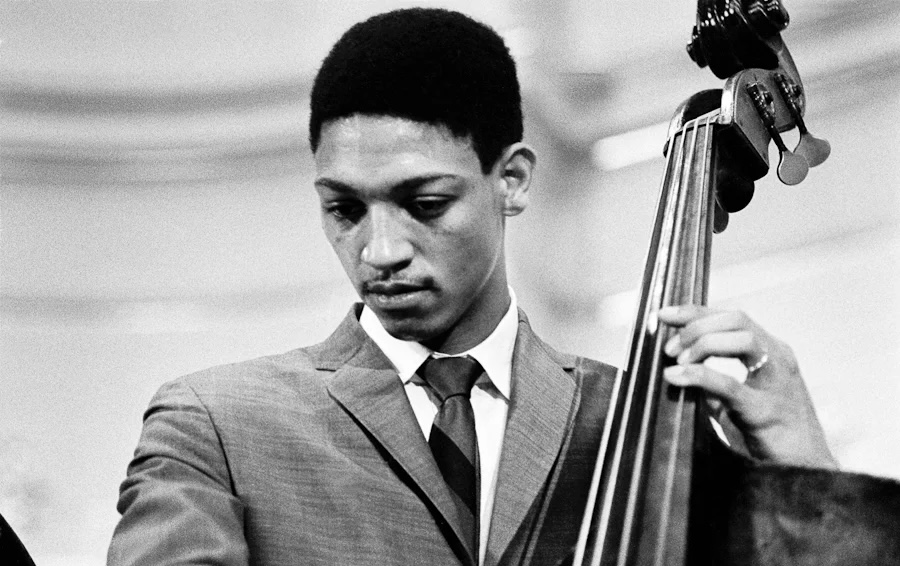Dive into the Power & Passion of ‘Tenor Madness
In the vast panorama of jazz, Sonny Rollins’ “Tenor…
Jazz aficionados, gather ’round as we delve into the life and legacy of a hard bop maestro: Butch Warren. As a bassist who has played with jazz legends such as Thelonious Monk, Herbie Hancock, and Dexter Gordon, Warren’s impact on the genre cannot be understated. Join me in a rhythmic journey that will leave you tapping your feet and appreciating the man behind the bass.

Born in 1939, Warren’s first professional foray into jazz came at the tender age of 14, playing bass in his father’s band. Raised in Washington D.C., Warren quickly gained a reputation for his exceptional talent. In 1958, he relocated to New York City, propelling his career, and joining Kenny Dorham at the iconic Five Spot.
Warren’s career reached new heights during his tenure as the house bassist for Blue Note Records. There, he collaborated with an impressive roster of musicians, including Joe Henderson, Jackie McLean, and Donald Byrd. His unique bass playing style was sought after for its ability to add depth and soul to hard bop recordings, earning him a special place in the genre’s history.

Let’s dive into some of Warren’s most memorable and influential albums, starting with Donald Byrd’s “Royal Flush.” On this album, Warren’s bass lines provide a lush backdrop for Byrd’s trumpet solos. Warren’s steady hand and impeccable timing complement the driving rhythms and adventurous harmonies, creating an unforgettable listening experience.
On Kenny Dorham’s “Una Mas,” Warren’s melodic bass lines once again take center stage. His interplay with Dorham’s trumpet and Joe Henderson’s tenor saxophone creates a dynamic tension that propels the music forward. The album’s title track features Warren’s bass in a particularly prominent role, underpinning Dorham’s innovative compositions with a sturdy yet supple foundation.
Dexter Gordon’s “Swingin’ Affair” showcases Warren’s versatility, as he effortlessly adapts to the tenor saxophonist’s distinct style. Gordon’s album, laden with captivating melodies and intricate solos, is bolstered by Warren’s supportive and rhythmic bass playing. His contributions to the tracks “Soy Califa” and “Don’t Explain” are particularly noteworthy, as he weaves seamlessly through the music’s fabric.
The partnership between Warren and Jackie McLean on “A Fickle Sonance” is nothing short of mesmerizing. Warren’s bass serves as the anchor for McLean’s fiery alto saxophone, offering a sense of stability amidst the album’s turbulent energy. Tracks such as “Subdued” and “Sundu” exemplify their remarkable chemistry, as Warren’s bass lines intertwine with McLean’s soaring melodies.
In Hank Mobley‘s “No Room for Squares” and “The Turnaround,” Warren’s bass playing is both assertive and sensitive. His skillful navigation of Mobley’s compositions adds depth and complexity to the music. The albums feature a series of unforgettable tracks, including “Me ‘N You” and “Pat ‘n Chat,” where Warren’s steady bass lines provide the perfect counterbalance to Mobley’s robust tenor saxophone.
Warren’s time with Thelonious Monk, as documented on “Monk in Tokyo,” reveals his adaptability as a musician. Monk’s idiosyncratic piano style challenged Warren to push his own boundaries. Their collaboration on tracks such as “Straight, No Chaser” and “Rhythm-a-Ning” demonstrates Warren’s ability to shift seamlessly between different roles, providing both rhythmic support and melodic interjections.
Joe Henderson’s “Page One” is yet another testament to Warren’s prowess as a bassist. This album marked the beginning of Henderson’s illustrious career and featured Warren’s unmistakable touch on the bass. Together, they created a timeless hard bop masterpiece. On tracks like “Recorda Me” and “Blue Bossa,” Warren’s bass lines meld with Henderson’s tenor saxophone, highlighting the dynamic interplay between the two musicians.
Throughout these iconic albums, Warren’s contributions are instrumental in shaping the hard bop sound. His bass lines act as the backbone, supporting the brilliant improvisations of his fellow musicians. However, it’s important to remember that Warren’s talents extended beyond the studio.
Warren’s live performances were equally captivating, with his bass lines exuding a magnetic energy that audiences couldn’t resist. His presence on stage was commanding, yet his playing remained sensitive and responsive, always in tune with the needs of the music.

Sadly, Butch Warren passed away in 2013, leaving behind a rich legacy of unforgettable music. His impact on the hard bop genre and the world of jazz is undeniable. Though he may not have been as prolific as some of his peers, his contributions to these classic albums continue to inspire generations of musicians and listeners alike.
In conclusion, Butch Warren’s mastery of the bass has left an indelible mark on jazz history. His playing on groundbreaking albums such as “Royal Flush,” “Una Mas,” “Swingin’ Affair,” “A Fickle Sonance,” “No Room for Squares,” “The Turnaround,” “Monk in Tokyo,” and “Page One” showcases his remarkable ability to adapt, support, and elevate the music he was a part of. As we remember and celebrate Warren’s life, let us not forget the invaluable contributions he made to the world of jazz.